2025 Award Recipients
SPR Awards Recipients
Maureen Andrew Mentor Award

Victor Nizet, MD
UC San Diego School of Medicine
Victor Nizet, MD is Distinguished Professor and Vice Chair of Basic Research, Department of Pediatrics, and Distinguished Professor of Pharmacy & Pharmaceutical Sciences at the University of California, San Diego (UCSD). A graduate of Reed College, Dr. Nizet received his medical training at Stanford University, completed a Residency and Chief Residency in Pediatrics at Harvard University’s Children’s Hospital in Boston, and a Fellowship in Pediatric Infectious Diseases at the University of Washington’s Children’s Hospital in Seattle. At UCSD, he leads a large basic and translational research laboratory studying bacterial pathogenesis, innate immunity, and novel approaches to treatment of antibiotic-resistant pathogens and sepsis. He has authored over 560 peer-reviewed publications and collaborated with several biotechnology companies to develop novel antibiotic and immune-based therapies and vaccines.
Dr. Nizet is particularly interested in graduate, postdoctoral, and junior faculty training and interdisciplinary research program development. In his laboratory, he has trained over 60 postdoctoral fellows and 20 PhD students, and more than 30 of his former trainees now hold independent faculty positions conducting extramurally funded research. At UCSD he is the PI of the NIAID T32 Training Program in Infectious Diseases and co-PI of the NICHD T32 Training Program in Pediatric Clinical Pharmacology, both of which support postdoctoral scholars and clinical fellows, as well as co-PI of the NIAID R25 Raising Advancement and Parity for Infectious Diseases Researchers and Training Director for the NICHD K12 Child Health Research Career Development Award, both of which support junior faculty members. He is also on the leadership committees of the Medical Scientist Training Program, PharmD/PhD Program, IRACDA Postdoctoral Fellow Program, and the National Center for Leadership in Academic Medicine.
Dr. Nizet’s contributions have previously been recognized by the E. Mead Johnson Award for Research in Pediatrics from the Society for Pediatric Research, the DC White Award for Interdisciplinary Research and Mentoring from the American Society of Microbiology, Career Awards from the American Heart Association and American Lung Association, an NIH/NIAID Merit Award, and his election to the American Society for Clinical Investigation (ASCI), Association of American Physicians (AAP), American Association for Advancement of Science (AAAS), American Institute for Medical and Biological Engineering (AIMBE), American Academy of Microbiology (AAM), and the National Academy of Medicine (NAM).
Thomas A. Hazinski Distinguished Service Award
 Shetal Shah, MD, FAAP
Shetal Shah, MD, FAAP
Maria Fareri Children’s Hospital, New York Medical College
The Society for Pediatric Research (SPR) is pleased to announce that Shetal Shah, MD, FAAP has been named the 2025 Thomas A. Hazinski Distinguished Service Award recipient. This prestigious award recognizes Dr. Shah’s outstanding service to SPR. Dr. Shah, a Professor of Neonatology in the Division of Neonatology, Stem Cell Liaison at the Maria Fareri Children’s Hospital of New York Medical College, is widely respected for his advocacy and contributions to advancing child health research.
Society for Pediatric Research Award in Honor of E. Mead Johnson

Katherine Y. King, MD, PhD
Baylor College of Medicine and Texas Children’s Hospital
Katherine Y. King MD PhD is Professor of Pediatric Infectious Diseases at Baylor College of Medicine and Texas Children’s Hospital, where she is part of the faculty for the Stem Cells and Regenerative Medicine Center and serves as Co-Director of the BCM Medical Scientist Training Program. Dr. King received her BA in Biochemical Sciences from Harvard University and her MD and PhD degrees from Washington University in St. Louis. A board-certified pediatric infectious diseases physician, Dr. King’s research focuses on the molecular mechanisms by which inflammation affects blood and immune cell production and clonal competition by hematopoietic stem cells in the bone marrow.
Dr. King discovered that infections activate hematopoietic stem cell division. She showed that persistent hematopoietic stem cell division during chronic infectious and inflammatory conditions can drive bone marrow failure. Further, she showed that Inflammatory activation of hematopoietic stem cells contributes to clonal hematopoiesis, a condition associated with cardiovascular disease and other diseases of aging. This body of work has made a significant impact on explaining disease phenotypes such as why infections impede stem cell engraftment after transplant, and why immunotherapy patients develop persistent cytopenias.
Dr. King also showed that the intestinal microbiome is a critical mediator of normal hematopoiesis. She has defined key molecular pathways and bacterial species that may contribute to maintenance of the blood system. Defining the mechanisms of microbiome-dependent hematopoiesis will aid in prevention of chemotherapy and transplant-associated neutropenia.
Current work in the King lab is directed at how infections and inflammation may generate lasting epigenetic changes in hematopoietic stem and progenitor cells, providing innate immune memory. This work will uncover new ways to enhance innate immune function against emerging pathogens.
Dr. King has been the recipient of the NHLBI R35 Emerging Investigator Award and the Presidential Early Career Award for Scientists and Engineers (PECASE). She is a member of the Society for Pediatric Research, the American Pediatric Society, and the American Society for Clinical Investigation. Aside from her research, Dr. King has been an advocate for equity in access to care and inclusion in the biomedical sciences. She was a founder of the non-profit Doctors for Change, which advocated for improved access to care for people in Houston, and she was the 2024 recipient of the Leadership Award in Diversity, Equity, and Inclusion by the International Society for Experimental Hematology.
Douglas K. Richardson Award for Perinatal and Pediatric Healthcare Research

Grace M. Aldrovandi, MD, CM
UCLA Mattel Children’s Hospital
Dr. Grace Aldrovandi is a physician-scientist and Chief of the Division of Infectious Diseases at UCLA Mattel Children’s Hospital and a Professor of Pediatrics at the David Geffen School of Medicine of the University of California, Los Angeles. Dr. Aldrovandi received her undergraduate and her medical degree from McGill University in Montreal, Canada. She completed an internship and residency at McGill, as well as a research fellowship in pediatric infectious diseases at the University of California, Los Angeles. She is a board-certified pediatric infectious diseases specialist with over 20 years experience in caring for both general pediatric infectious diseases as well as HIV infected children and their families. Dr. Aldrovandi’s research interests include pediatric HIV, the effects of breast milk on child health and infections in immunocompromised children. She has published more than 200 peer review publications in such journals as Nature, Journal of Virology, and the New England Journal of Medicine and multiple book chapters. She has been a member of many National Institutes of Health study sections and lectured throughout the world.
Dr. Aldrovandi has had continuous NIH funding for over 20 years, and in recognition of her significant contributions was honored with the prestigious Elizabeth Glaser Scientist Award. She and her collaborators were the first to describe increased morbidity and mortality among HIV-exposed uninfected infants, an essential discovery with potential implications for improving health outcomes in this vulnerable population. Dr. Aldrovandi’s laboratory is at the forefront of investigating microbial communities’ role in various compartments, ranging from mucosal (breast, vagina, rectum, oral) to non-mucosal (skin) regions. Their pioneering work demonstrated the presence of perturbations in the microbiome of infants born to HIV-infected women, despite the infants not being infected with HIV. Employing sophisticated bioinformatics approaches, they have skillfully modeled microbial maturation and strain transfer from breast milk to infant stool, unveiling new insights into this crucial area of research.
Having played prominent leadership roles in several NIH-funded clinical trials Networks, Dr. Aldrovandi has a deep understanding of the collaborative efforts essential for transformative research in the field. This unique perspective allows her to identify opportunities for innovative and impactful investigations
Dr. Aldrovandi is deeply committed to nurturing the next generation of scientists and has actively engaged in mentoring activities to encourage underrepresented Latino and African-American high school students to pursue careers in STEM fields. Her mentoring efforts have garnered attention and recognition, with a feature on Despierta America, highlighting the impact of their work in inspiring and guiding young minds towards scientific excellence. Moreover, Dr. Aldrovandi has had the privilege of mentoring numerous talented individuals, guiding them through their academic and research journeys. Her mentorship has been instrumental in helping these individuals secure prestigious awards and grants, including T32, K08, K23, K99, R01, and a Doris Duke Award.
Bridging to Success Award
PROSPER Diversity Award

Shannon Adams-Hartung, MD
Ann and Robert H. Lurie Children’s Hospital of Chicago
Dr. Shannon Adams-Hartung is a first-year fellow in the Division of Neonatology at Ann & Robert H. Lurie Children’s Hospital of Chicago. Born and raised in Baltimore, Maryland, she attended college at Duke University where she graduated cum laude, double majoring in History and Global Health. She then went on to receive her medical degree from the Warren Alpert Medical School of Brown University before completing her residency in pediatrics at the McGaw Medical Center of Northwestern University/Ann & Robert H. Lurie Children’s Hospital of Chicago.
Shannon’s academic interests lie at the intersection of neonatology and medical ethics, including topics in maternal-fetal management, neonatal end-of life decision making, prenatal counseling in the case of extreme prematurity or congenital anomaly, and health equity. As a medical student, she conducted research looking at parent and physician interpretations of quality of life for neonatal patients through the Scholarly Concentration in Medical Humanities and Ethics at Brown, and was later selected to participate in the interdisciplinary Fellowship at Auschwitz for the Study of Professional Ethics (FASPE). She continued her work in residency where she completed the McGaw Bioethics Scholars Program at Northwestern and engaged in research and writing related to the use of DNR orders in the NICU, abortion and perinatal palliative care provision in the wake of the Dobbs decision, and institutional culture on the topic of periviability. She is currently launching a multi-center mixed-methods study building on her previous ethical cultures work.
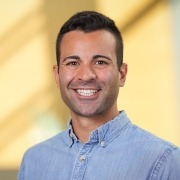
Evan Rajadhyaksha, MD
Indiana University School of Medicine
Evan is a first-generation American, shaped by a rich cross-cultural upbringing. His parents, who immigrated from opposite sides of the world, blended their cultures and instilled in him a deep pride in his identity as both Hispanic and Indian-American.
Evan completed his undergraduate and medical education at the University of Virginia (UVA), where his passion for immunology blossomed as he investigated the impact of allergic asthma on the innate immune response to rhinovirus. Staying at UVA for pediatric residency, he was drawn to the spectrum and complexity of diseases treated in nephrology. He chose to specialize in nephrology for the way it combines features of immunology and rheumatology with critical care physiology, while allowing for long-term patient relationships—one of his favorite aspects of pediatric medicine.
Now in his second year of pediatric nephrology fellowship at Indiana University, Evan continues to explore how immune responses can become maladaptive and cause harm. Through his T32 in clinical pharmacology, he has utilized single cell transcriptomics, developing a keen interest in applying gene expression and pathway analyses to pediatric nephrology research. The PROSPER award has significantly supported his project, which investigates the effect of Vitamin D deficiency on the immune response to pyelonephritis within the unique cellular microenvironment of the kidney, building on his previous research experiences.
New Member Outstanding Science Award

Amanda Muir, MD, MTR
Children’s Hospital of Philadelphia, Perelman School of Medicine at the University of Pennsylvania
Dr. Muir’s clinical and research goal is to improve the lives of children with eosinophilic gastrointestinal disease and prevent the devastating consequences of eosinophilic inflammation including weight loss feeding disorders, dysphagia and esophageal stricture. Following training in general pediatrics, a strong foundation in mucosal immunology led to a natural interest in pediatric gastroenterology, in which perturbations in the balance between environmental factors and host innate immune responses have a profound impact upon human growth and development. Among its many complications, disruptions in the esophageal epithelial homeostasis is the most striking histologic feature of eosinophilic esophagitis (EoE). Dr. Muir has been able to grow expertise in esophageal epithelial biology and 3-D culture systems. Using primary culture methods, she has developed an esophageal organoid platform to recapitulate the EoE microenviroment and has been able to utilize this model to understand the role of the esophageal epithelium in propagating inflammation and fibrosis. She has been able to build a robust platform for biobanking, growing primary organoid, air liquid interface and organotypic cultures, and performing in depth genetic and transcriptomic evaluations. In addition to this disease modeling in vitro, Dr. Muir also has a clinical research portion of her lab. A major knowledge gap in the field of EoE is how to identify esophageal fibrosis prior to the onset of a frank stricture. She has pioneered the use of a novel tool, the endoluminal function imaging probe or EndoFLIP, in clinical and research practice in the pediatric GI community. EndoFLIP uses high-resolution impedance planimetry to determine the pressure-geometry relationship or distensibility of the esophagus. Using this tool, she has found that EoE patients have decreased esophageal distensibility compared to healthy non-EoE controls. Furthermore, this difference is exacerbated by disease complications including esophageal fibrosis and food impactions.
SPR Awards to Enhance Diversity in the Research Workforce

Stephanie Diggs, MD, MSc
Washington University in Saint Louis School of Medicine (WashU Med)
Midwest SPR
Stephanie Diggs, MD, MSc, FAAP is a Neonatal-Perinatal Medicine physician and holds faculty appointment as an Instructor of Pediatrics in the Division of Newborn Medicine, Department of Pediatrics at Washington University in Saint Louis School of Medicine (WashU Med). Her overarching research interest revolves around understanding the complex interplay between social determinants and health outcomes with a focus on addressing both early maternal influences and later NICU environmental influences on neonatal health disparities. Through her research and clinical endeavors, she hopes to provide more equitable care and work towards diminishing healthcare gaps for this vulnerable population.
Young Investigator Award
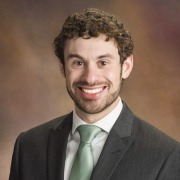
Daniel Corwin, MD, MSCE
Children’s Hospital of Philadelphia
Daniel Corwin, MD, MSCE is a Pediatric Emergency Medicine Attending Physician, Assistant Professor of Pediatrics at the Perelman School of Medicine at the University of Pennsylvania, Director of Clinical and Translational Research for the Division of Emergency Medicine at Children’s Hospital of Philadelphia (CHOP), Associate Director and Emergency Department Lead of the CHOP Minds Matter Program, and Scholar and Leadership Council Member for CHOP’s Center for Injury Research and Prevention. He completed his undergraduate work at the University of Pennsylvania, medical school at the New York University School of Medicine, and his pediatric residency, pediatric emergency medicine fellowship, and pediatric emergency medicine research fellowship at Children’s Hospital of Philadelphia.
His research focuses on: (1) improving mild traumatic brain injury (TBI) diagnosis across care settings, including utilizing objective physiologic markers of injury to facilitate timely and accurate diagnosis; (2) improving mild TBI risk stratification for pediatric patients evaluated shortly following injury, to appropriately guide referral and intervention strategies; (3) improving equity in TBI care by exploring novel care pathways, with a specific focus on digital health and remote patient monitoring as tools to optimize care equity; and (4) evaluating early therapeutics for mild TBI, including leading the first randomized trial of a nutraceutical to improve mild TBI symptoms in the pediatric population. His work is supported by grants from the NIH, CDC, BARDA, Department of Defense, and Toyota Way Forward Fund. The hallmark of his work is high quality research resulting in impactful peer-reviewed publications, coupled with translation and implementation of that research at the point-of-care.
SPR and APS Joint Award Recipient
Mary Ellen Avery Neonatal Research Award
 Cynthia Bearer, MD, PhD
Cynthia Bearer, MD, PhD
Rainbow Babies & Children’s Hospital, Case Western Reserve University
Dr. Cynthia Bearer is the William & Lois Briggs Chair of Neonatology and Chief, Division of Neonatology, Rainbow Babies & Children’s Hospital and Professor of Pediatrics & Neurosciences at Case Western Reserve University. She has made significant contributions to neonatal health through basic and translational research for multiple conditions impacting the developing brain, such as fetal alcohol syndrome, hyperbilirubinemia, and toxic environmental exposures.
FOPO Award Recipient
Joseph W. St. Geme, Jr. Leadership Award

Abstract Related Awards Recipients
House Officer Research Award

Daniel Diaz-Gil, MD
Boston Children’s Hospital
Dr. Daniel Diaz-Gil, a senior pediatric resident and rising pediatric cardiology fellow at Boston Children’s Hospital and Harvard Medical School, is being honored with the SPR House Staff Award for his significant contributions to the understanding of Hypoplastic Left Heart Syndrome (HLHS), particularly through his groundbreaking research on Neuregulin 1 (NRG1) and its role in diastolic dysfunction of the hypoplastic left ventricle. His innovative use of single-nucleus RNA sequencing and RNA scope techniques has illuminated the critical interactions between fibroblasts and cardiomyocytes in HLHS, uncovering a novel fibroblast cluster with increased NRG1 expression linked to severe myocardial dysfunction. This discovery advances our knowledge of the molecular mechanisms driving HLHS and opens new avenues for targeted therapeutic interventions.
Dr. Diaz-Gil’s research is distinguished by its integration of advanced molecular profiling with clinical diagnostics, aiming to develop precision therapies that improve the survival and quality of life of children with severe cardiac malformations. Supported by the Congenital Heart Disease Coalition and the Fred Lovejoy House-staff Research Fund, his work leverages his clinical insights and basic science expertise to drive clinically relevant scientific breakthroughs. This award recognizes his exceptional ability to bridge pioneering research with transformative clinical practice, setting new standards in pediatric cardiology, while still being in residency.

Eleanor Semmes, MD, PhD
Boston Children’s Hospital, Boston Medical Center
Eleanor Semmes, MD PhD, is a second-year pediatric resident in the Boston Combined Residency Program at Boston Children’s Hospital and Boston Medical Center. She completed her MD/PhD at Duke University’s Medical Scientist Training Program. Her PhD work at the Duke Human Vaccine Institute focused on maternal-fetal immunity in congenital CMV infection and was mentored by Sallie Permar, MD PhD. Her doctoral research identified Fc antibody functions including antibody-dependent phagocytosis and cellular cytotoxicity as associated with protection against congenital CMV transmission. Drs. Semmes and Permar have continued to collaborate during her residency training on research related to how CMV shapes neonatal T and NK cell populations in utero.
Her research “Cord blood CD8+ T cells acquire NK-like antibody-dependent cellular cytotoxicity (ADCC) functions in congenital human cytomegalovirus infection” identified a unique population of CD8+ T cells that upregulate Fc?RIII/CD16 and other NK cell genes/receptors following CMV exposure in utero. These CD8+ T cells undergo transcriptional reprogramming to acquire Fc effector functions that may synergize with maternal IgG to help protect infants against congenital and perinatal infections.
Dr. Semmes will begin her pediatric infectious diseases fellowship at Boston Children’s Hospital in July 2025 and plans to pursue a career as a physician-scientist.

Sarah Z. Wang, MD, MPH
Boston Children’s Hospital
Sarah Wang is currently a Research Fellow in the Department of Surgery at Boston Children’s Hospital/Harvard Medical School. Sarah’s research interests include the development of new therapies for conditions affecting preterm infants, including necrotizing enterocolitis (NEC) and NEC-related short bowel syndrome. She is particularly interested in the role of lipids and lipid-like bioactive molecules for the treatment of intestinal failure-related complications including liver disease. She is actively involved in pediatric clinical trials that focus on these areas. Sarah received this award in recognition of her translational work on the role of lipase-mediated fat digestion in reducing intestinal injury in a murine model of necrotizing enterocolitis.
Sarah is a General Surgery resident at the Cleveland Clinic Foundation and intends to pursue a career in pediatric surgery. Sarah gratefully acknowledges the continuous support of her mentor and pediatric surgeon-scientist Dr. Mark Puder, the Vascular Biology Program, and the Department of Surgery at Boston Children’s Hospital.
Student Research Award

Marwa Ramsie, BSc
University of Alberta
Marwa Ramsie is a PhD candidate in the Centre for the Studies of Asphyxia and Resuscitation. Under the guidance of Dr. Georg Schmölzer and Dr. Po-yin Cheung, she has been examining various vasopressors and routes of administration during neonatal hypoxia-reoxygenation and asphyxia-induced asystolic cardiac arrest. Marwa is being recognized for her work in examining the systemic and cerebral hemodynamic effects of norepinephrine in neonatal piglets with hypoxia-reoxygenation. This study was established to address the limited information available on the use of norepinephrine in neonates with hypoxia-reoxygenation induced hypotension and cardiogenic shock.
Marwa is passionate about neonatal health and hopes to continue to work on reducing neonatal morbidity and mortality through the investigation of vasopressor therapies.

Paige Riddington, BSc (Hons)
Department of Obstetrics and Gynaecology, Monash University. The Ritchie Centre, Hudson Institute of Medical Research.
Paige Riddington is a PhD student in the Department of Obstetrics and Gynaecology at Monash University, Australia and a researcher within the Fetal and Neonatal Health group at The Ritchie Centre, Hudson Institute of Medical Research. Her work focuses on improving health outcomes for infants born with a congenital diaphragmatic hernia (CDH) by optimising early respiratory support strategies to enhance lung aeration and cardiopulmonary function at birth.
Paige’s research employs preclinical newborn sheep and rabbit models of CDH to investigate cardiopulmonary haemodynamics and gas exchange efficiency. As part of a multidisciplinary team of leading perinatal physiologists and physicists, she utilises advanced imaging techniques, including phase contrast X-ray imaging, to study lung aeration in the immediate newborn period.
Her research demonstrates how a small external negative pressure applied during conventional mechanical ventilation improves lung aeration while reducing airway pressures in newborn rabbits with a diaphragmatic hernia.

Sydne Ballengee, BS
Medical Student at Wright State University Boonshoft School of Medicine; Presenting research out of the University of Miami Miller School of Medicine
I am honored to receive the SPR Medical Student Research Award for my abstract, “Deletion of Gasdermin D Attenuates Cardiovascular Remodeling in Adult Mice Exposed to Neonatal Hyperoxia.” This project aims to expand our understanding of the long-term sequelae of prematurity. Adults born prematurely face an increased risk of cardiovascular complications, yet the mechanisms underlying this dysfunction, particularly in the context of neonatal hyperoxia, remain unclear. Previous research has identified Gasdermin D as a key mediator in inflammasome activation and pyroptosis, a form of programmed cell death. Our findings demonstrate that global Gasdermin D knock-out reduces cardiovascular dysfunction, vascular stiffness, and fibrosis associated with neonatal hyperoxia exposure. These results suggest a potential strategy for preventing the long-term cardiovascular consequences of neonatal hyperoxia in adults born preterm.
I began contributing to this research as an undergraduate student at the University of Miami Division of Neonatology, where I developed a strong foundation in neonatal research under the mentorship of Dr. Merline Benny. Now, as a medical student in Ohio, I remain dedicated to this project and to advancing our understanding of the pathophysiology of prematurity.

Carolyn Cafro, BS
University of Rochester
Carolyn Cafro is being recognized for her contributions to neonatal pulmonary hemodynamics research as part of the larger Comprehensive Real-Time Assisted Deep Learning in ELGANs (CRADLE) study. Under the mentorship of Dr. Irina Prelipcean and in collaboration with a multidisciplinary team, Carolyn’s work focuses on identifying early pulmonary hemodynamic patterns in extremely low gestational age newborns (ELGANs) and defining clinical trajectories that predispose them to later pulmonary hypertension (PH). By leveraging data from a retrospective cohort, she has helped characterize two distinct early PH phenotypes—pressure-mediated and flow-mediated PH—shedding light on critical perinatal risk factors influencing neonatal cardiopulmonary outcomes.
Her research contributes to the broader CRADLE study, which aims to develop real-time clinical decision support (CDS) tools for neonatal clinicians using machine learning. By identifying key predictors—such as maternal hypertensive disorders and intrauterine growth restriction (IUGR) for pressure-mediated PH, and prolonged PDA exposure for flow-mediated PH—her work informs the development of data-driven interventions to improve neonatal outcomes. This research not only enhances the understanding of pulmonary hemodynamics in ELGANs but also supports CRADLE’s mission to integrate machine learning into neonatal care to optimize clinical decision-making.

Kate DiNucci
University of Washington
Kate DiNucci is a third-year undergraduate student at the University of Washington, studying Neuroscience and Bioethics with the goal of pursuing an MD-PhD. For the past three years, she has conducted research in the Neonatal Neuroscience Lab under the mentorship of Dr. Tommy Wood, focusing on neuroprotective therapies for neonates.
As a primary author, Kate conducted a secondary analysis of the Preterm Erythropoietin for Neuroprotection Trial (PENUT) to investigate sex-dependent associations of magnesium sulfate on neurodevelopmental outcomes. Her findings indicate no significant sex-specific differences in response to magnesium sulfate across all outcome measures, reaffirming its safety while also highlighting a lack of neuroprotective benefit.
Kate aspires to advance neonatology and pediatric neurology through her research and future work as a physician, aiming to improve long-term patient outcomes and identify effective and accessible neonatal neuroprotectants.

Shalini Indugula
Cincinnati Children’s Hospital Medical Center
I am an undergraduate in the Schuh lab at Cincinnati Children’s Hospital Medical Center. I am involved in a project that aims to examine the effects of the timing of nephrotoxic medication administration on levels of AKI and nephron loss seen during postnatal nephrogenesis. During this project, I performed Immunofluorescence staining and imaging on rabbit kidney samples to visualize and compare injury in epithelium, and tubular regions of the kidney. I conducted a blinded analysis of samples after Periodic Acid Shift (PAS) staining to quantify injury and performed and assisted with molecular techniques such as qPCR, RNA extractions, and cDNA synthesis. Under the guidance and mentorship of Dr. Meredith P. Schuh I attended lab meetings, assisted and conducted various lab protocols, and had the honor to present at the International Neonatal Nephrology Symposium and won the Best Oral Abstract of 2024. I am extremely excited to be a part of this project and hope to continue to contribute to neonatal research.
Japan Pediatric Society (JPS)/SPR Fellows’ Exchange Award

Yuto Arai, MD, PhD
Division of Child Neurology, Department of Brain and Neurosciences, Faculty of Medicine, Tottori University
I am an Assistant Professor at Tottori University specializing in Child Neurology, with a focus on improving the quality of life for children with epilepsy and their families. I have previously developed a long-term prognostic model for Infantile Epileptic Spasms Syndrome, identified prognostic factors related to employment outcomes in childhood-onset drug-resistant epilepsy, and conducted studies on the subjective well-being of parents of children with disabilities.
This study is the first to demonstrate that climate change serves as a seizure trigger in children with drug-resistant epilepsy. These findings are expected to enhance the understanding of seizure triggers among patients’ families and healthcare providers, thereby contributing to improvements in epilepsy management.
This recognition underscores my commitment to advancing pediatric neurology and supporting families affected by epilepsy.
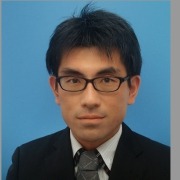 Ryo Nishiguchi, MD
Ryo Nishiguchi, MD
NHO Nagasaki Medical Center
Ryo Nishiguchi is a neonatologist at NHO Nagasaki Medical Center in Japan. At the hospital, he is involved in daily neonatal care in the NICU and developmental care in the outpatient setting. His practice and research also focus on the long-term prognosis, including disease and development, of preterm and low-birth-weight infants.
He received his medical degree from Nagasaki University School of Medicine. He trained in neonatal medicine at the NICU of Saitama Medical Center, Saitama Medical University, one of the largest in Japan. He currently works as a neonatologist in his hometown of Nagasaki, where he lives with his wife and two sons.
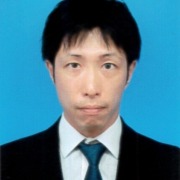 Hisao Okabe, MD
Hisao Okabe, MD
Department of Pediatrics, School of Medicine, Fukushima Medical University
Over the past decades, our research team at the Department of Pediatrics, Fukushima Medical University has conducted a longitudinal study analyzing amino acid (AA) mutations in the fusion (F) protein of respiratory syncytial virus (RSV) and their effects on monoclonal antibody (mAb) sensitivity and viral replicative capacity. We analyzed 236 RSV strains isolated from children hospitalized with RSV infections between 2008 and 2023 in Fukushima Prefecture, Japan. Our team identified significant AA mutations in key neutralizing epitopes (sites II, V, and Ø) of the F protein. For instance, we discovered that mutations in site V and Ø influenced antibody sensitivity, without decreasing replicative capacity. Using neutralization assays and replication studies, we demonstrated that RSV in Japan naturally evolved with AA mutations that affect sensitivity to specific antibodies. Our findings highlight the importance of continuous monitoring of AA mutations to better understand their implications for antibody-based treatments and vaccine strategies. This award acknowledges the collective efforts and contributions of our team in advancing the understanding of RSV evolution, antibody resistance, and the clinical implications of these findings, with the hope of contributing to improved outcomes for pediatric patients worldwide.
European Society for Pediatric Research Young Investigator Exchange Award

Vincent Gaertner, MD, BSc
ILMU Hospital Munich
Vincent D. Gaertner, M.D., B.Sc., is a postdoctoral researcher in the neonatal division at the Dr. von Hauner Children’s Hospital in Munich, Germany. He graduated summa cum laude in medicine from the University of Regensburg, Germany, and in psychology from the University of Mannheim, Germany. His research led him to work at the Neonatal Departments of the University Hospital Zurich in Switzerland, and the Royal Women’s Hospital in Melbourne, Australia.
His scientific work focuses on the pathophysiology of fetal-to-neonatal transition, as well as different respiratory support strategies for very preterm infants immediately after birth and in high-risk situations in the neonatal intensive care unit. Now he is heading his own research group where he aims to improve our understanding of the physiology of neonatal transition and to improve respiratory support strategies in the delivery room and on the NICU.
He has received numerous awards including the Adalbert-Czerny medal from the German Society for Pediatrics. Currently, he received the Young Investigator Award of the European Society for Pediatric Research for the EAGLE study where he assessed lung volume changes during the first breaths after birth in healthy term-born infants using electrical impedance tomography. In this study, he described how quickly the newborn lung is aerated, how infants generate functional residual capacity after birth and how air is distributed during this crucial moment in life.
Fellows’ Basic Research Award (2 awards given annually)

Noor Mehandi, MD
University of Miami Miller School of Medicine
I am a second-year clinical fellow in the Neonatal-Perinatal Medicine Fellowship at the University of Miami Miller School of Medicine/Jackson Health System. To deepen my understanding of the pathogenesis of Bronchopulmonary dysplasia (BPD), I pursued a basic science research project under Dr. Shu Wu, focusing on the critical roles of inflammasome cascades in hyperoxia-induced lung injuries in neonatal mice.
Under Dr. Wu’s guidance, I spearheaded the investigation into the role of apoptosis associated speck-like protein containing a caspase recruitment domain (ASC) in BPD and the effects of IC100, a humanized anti-ASC antibody in preventing BPD in hyperoxia-induced mouse models. My first objective was to determine if hyperoxia activates ASC speck formation, which is required for inflammasome activation. I exposed ASC-citrine reporter mice, expressing ASC fusion protein with a C-terminal Citrine (fluorescent GFP isoform) to room air (RA) or 85% oxygen (O2) from postnatal day (P) 1 to P14, and then dissected the lung on P14, and prepared tissue sections for examination of ASC specks. I found that O2-exposed lungs had strong signals for ASC specks and BPD-like pathology, suggesting the activation of inflammasomes.
I then conducted experiments to assess the efficacy of IC100 in preventing hyperoxia-induced BPD. I randomized newborn mice to RA with placebo, RA with IC100 intraperitoneal injection, 85% O2 with placebo, and 85% O2 with IC100 intraperitoneal injection. On P14, I dissected the lung from these mice, assessed lung structures by radial alveolar count (RAC), and measured lung inflammation by counting macrophage infiltration in the alveolar airspace. I found that hyperoxia exposure reduced alveolarization and increased lung inflammation; however, IC100 treatment improved alveolarization and reduced lung inflammation in hyperoxia-exposed lungs. These results highlight the critical role of ASC in the pathogenesis of BPD and suggest that IC100 may have the potential to treat preterm infants from developing BPD.

Anusha Mopuri, MBBS, MD
UH Rainbow Babies and Childrens Hospital
Dr. Anusha Mopuri has been recognized for my innovative research in neonatal respiratory medicine, where she developed a novel approach using aerosolized human mesenchymal stem cell–conditioned media to prevent CPAP-induced airway hyperreactivity. Her work bridges basic science and clinical application, aiming to improve long-term respiratory outcomes in preterm infants.
David G. Nathan in Basic Research Award (1 award given annually)

Benjamin Fensterheim, MD, PhD
Children’s Hospital of Philadelphia
Developing new and effective therapies for preterm infants remains challenging, partly due to limited knowledge of how preterm birth alters normal immune system development. During my Neonatal-Perinatal Medicine fellowship, I aimed to precisely characterize how the preterm immune system evolves over time and in response to diseases of prematurity.
To achieve this, I established a pipeline to perform deep immune profiling using whole blood scavenged from the clinical laboratory every two weeks from preterm infants born in the Intensive Care Nursery at the Hospital of the University of Pennsylvania. I identified key immune cells and proteins whose development varied across gestational ages, and pinpointed immune pathways most affected by certain complications of prematurity. Notably, some preterm infants with severe infections had a dramatic shift in their CD8 T-cell composition, which persisted for months, and others with severe bronchopulmonary dysplasia showed progressive increases in CD4+ Th17 T-cell-related immune activity.
This project, which I conceptualized, executed, and analyzed, highlights how comorbidities of prematurity can change normal immune system development. It suggests specific immune mechanisms, such as the Th17 pathway, as potential drivers of disease progression, offering promising avenues for future therapeutic interventions.
Basic Research Award for Fellows, sponsored by the Emerging to Established (E2E) SPR Members’ Section (2 awards given annually)

Kelly Orgel, MD, PhD
University of North Carolina at Chapel Hill
Dr. Orgel is a physician-scientist in the Neonatal-Perinatal Medicine Fellowship program at the University of North Carolina (UNC) at Chapel Hill. Dr. Orgel received her MD/PhD from UNC, where she studied T cell and antibody responses in food allergies. Following her PhD and inspired by the premature birth of her daughter at 25 weeks gestation, her love of neonatal physiology, and her passion for caring for families in their most vulnerable moments, she decided to pursue a career in neonatology. Her research, with the mentorship of Dr. Misty Good, focuses on understanding the immunologic mechanisms that underly the development of necrotizing enterocolitis (NEC), a life-threatening intestinal disease that predominately affects premature infants.
There are major knowledge gaps in our understanding of the pathophysiology of NEC despite decades of research. The Good Lab previously demonstrated that the polyfunctional cytokine interleukin-22 (IL-22) protects against intestinal injury during NEC. However, IL-22 requires tight regulation, as it has the potential to induce a pro-inflammatory response through signal transducer and activator of transcription 3 (STAT3). Dr. Orgel’s research focuses on the regulation of IL-22 signaling by IL-22 binding protein (IL-22BP), a soluble inhibitory IL-22 receptor that inhibits binding of IL-22 to its receptor. Specifically, she studies the IL-22/IL-22BP signaling axis during intestinal development and NEC-induced inflammation using human intestinal organoids as well as mouse models of the disease. Thus far, her work has shown that recombinant IL-22 induces expression of the gene for IL-22BP (Il22ra2) in the intestine of neonatal mice during homeostasis but not during experimental NEC. Additionally, Il22ra2 is down-regulated during NEC-induced inflammation in the absence of IL-22 administration. Dr. Orgel’s future studies will focus on elucidating the mechanisms behind these findings and their implications for disease pathogenesis.

Jeremy Sandgren, MD, PhD
University of Iowa
Jeremy Sandgren is a 3rd year neonatology fellow at the University of Iowa with an interest in neonatal sepsis. During fellowship, he has studied the role of iron in infections caused by E. coli K1, a common cause of neonatal sepsis and meningitis. His work has built off previous work in the lab demonstrating that neonatal mice, with high iron availability, are more susceptible to E. coli K1 than adults, who have low amounts of available iron. Specifically, he found that knocking out certain secreted iron scavenging compounds, called siderophores, from E. coli K1, it is possible to dramatically reduce mortality caused by E. coli K1 in a mouse model of neonatal early-onset sepsis. These data led him to create a vaccine against one of these siderophores, enterobactin (entF). When this vaccine is administered to adult female mice, their offspring have reduced susceptibility to E. coli K1 infection. These data are exciting because they offer a potential vaccination strategy against E. coli early-onset sepsis. Jeremy is excited to be joining the University of Iowa as faculty in the summer, where he plans to study the long-term effects of early-life inflammation on cardiovascular function as a physician-scientist.
Fellows’ Clinical Research Award (2 awards given annually)
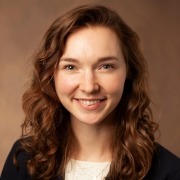
Nina Hill, MD
University of Michigan
Our study team examined HIV pre-exposure prophylaxis dispensing to young adults using a national pharmacy database between 2016 and 2023. We found that both PrEP dispensing and initiation increased in young adults during the study period, but that duration of treatment episodes shortened. In partnership with my mentor and collaborator, I conceptualized the research question for the study, analyzed and interpreted the results, and drafted the abstract for Pediatric Academic Societies.

Jeanette Van Steyn, MD
University of North Carolina at Chapel Hill
Jeanette Van Steyn is a second-year Neonatal-Perinatal Medicine Fellow at the University of North Carolina and a Master of Public Health student at the UNC Gillings School of Global Public Health. Her research focuses on enhancing neonatal and child health, particularly in low- and middle-income countries (LMICs), to inform interventions that promote equitable health outcomes for vulnerable populations. Her current work examines the impact of pre- and postnatal growth on neurodevelopmental outcomes among children of ASPIRIN trial participants in LMICs.
Richard D. Rowe Award in Clinical Research (1 award given annually)

Claire C. Foster, MD MPH
University of Arkansas for Medical Sciences
Claire Foster, MD, MPH is a fellow physician in Developmental Behavioral Pediatrics and Pediatric Critical Care Medicine at the University of Arkansas for Medical Sciences and Arkansas Children’s Hospital. Her research is focused on identifying potential risk factors for cognitive, developmental, or behavioral sequelae after critical illness and understanding approaches that could improve outcomes after pediatric ICU admission.
Dr. Foster is awarded the 2025 SPR Richard D. Rowe Award in Clinical Research for her study, “Changes in Academic Standardized Testing After Pediatric Critical Illness or Injury,” which will be presented at the 2025 Pediatric Academic Society’s Annual Meeting. This project found that patients admitted to the PICU were less likely to return to school-based standardized testing in the two years following PICU admission compared to matched controls; and in patients that did return to testing, they experienced greater declines in their scores.
Dr. Foster’s dual training in Developmental Behavioral Pediatrics and Pediatric Critical Care Medicine provides a unique perspective to further understand the impacts of critical injury and illness during childhood, and she looks forward to continuing her career as a physician-scientist investigating cognitive and developmental outcomes among PICU survivors.
Clinical Research Award for Fellows, sponsored by the Emerging to Established (E2E) SPR Members’ Section (2 awards given annually)
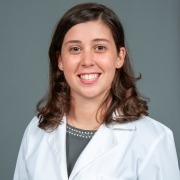
Paige Nettles, MD
Prisma Health
Prior research has highlighted barriers to scheduling of patients referred to subspecialty pediatric clinics. Existing data have focused on family experiences that may impede access; however, limited data are available on potential barriers embedded within referral processes. Referral processes requiring pre-appointment questionnaires create barriers to developmental evaluation services in populations utilizing public insurance and those living in areas with lower health literacy rates and higher neighborhood disadvantages. Healthcare organizations must assess the impact of social determinants of health on referral workflows to improve access to pediatric subspecialty care.
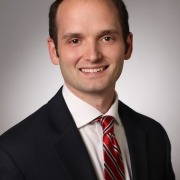
Joseph Starnes, MD, MPH
Vanderbilt University Medical Center
Joey Starnes is a third-year pediatric cardiology fellow at Vanderbilt University Medical Center. He also completed medical school and pediatrics residency at Vanderbilt. His recent research has focused on inequitable performance of optical medical technologies based on skin color, including pulse oximetry and near infrared spectroscopy (NIRS). His work on pulse oximetry was recently published in The New England Journal of Medicine.
He is receiving the SPR fellows clinical research award for his prospective study quantifying the effect of skin color on the performance of NIRS. He found that NIRS significantly overestimates the mixed venous saturation in patients with darker skin. This may lead to differences in management and contribute to inequities in outcomes. His work has been supported by a T32 grant from the Agency for Healthcare Research and Quality.
